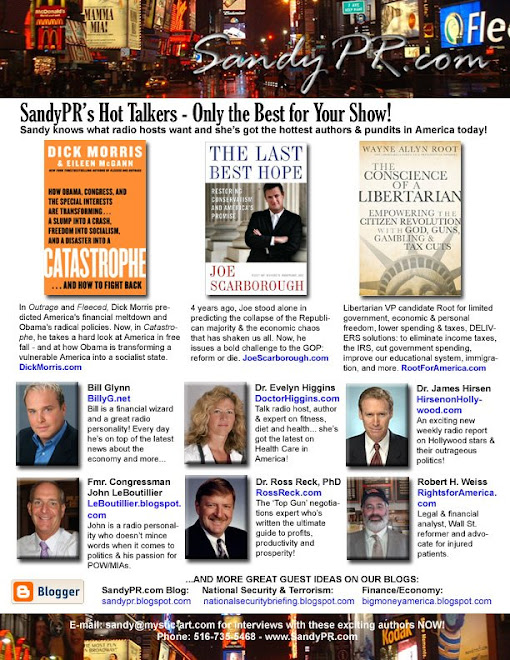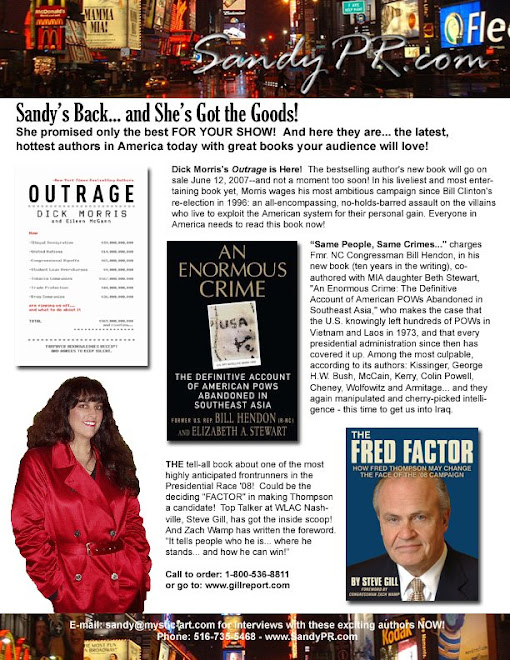The
Never-Before-Told Story of Ronald Reagan's
First
Quest for the Presidency
"Kopelson has provided an extensively
detailed and carefully documented account of Ronald Reagan's first foray into
presidential candidacy. Particularly fascinating is the author's original
research, which reveals how a highly successful president of a prior era-Dwight
D. Eisenhower-provided invaluable advice and encouragement to Reagan, which
helped to shape the leadership and accomplishments of our 40th president."
--The Honorable
Edwin Meese III, former Attorney General
With the presidential
election heating up daily and the media, the GOP and Republican Nominee, Donald
Trump constantly making references to President Reagan's much-admired
accomplishments, comes a very unique book about our 40th President.
Heralded by Hon. George P. Shultz, Secretary of State under President
Reagan and renowned Reagan historians alike, Reagan's 1968
Dress Rehearsal: Ike, RFK, and Reagan's Emergence as a World Statesman
is an inspiring never-before-told history of how Ronald Reagan began to restore
pride in America when he first ran for president in the late 1960s.
Author and historian, Gene Kopelson's
tireless research uncovered findings based upon never-before-analyzed critical
archives. Against the backdrop history of Reagan's first campaign for the
presidency, it can now be revealed that behind the scenes, none other than
former President Dwight D. Eisenhower was Ronald Reagan's hidden political
mentor. In fact, throughout the 1960s, Ronald Reagan was tutored by former
President Eisenhower on how to enter politics, how to run his 1966
gubernatorial primary, and then general election campaigns. Eisenhower even
counseled Reagan on how to fight charges of antisemitism and critiqued Reagan's
speaking style.
Reagan followed Eisenhower's
political advice virtually to the letter, and indeed Reagan based his 1966
campaign theme on Ike who said he would endorse Reagan for president if he were
the 1968 nominee, urged him to run for president as California's favorite son,
and may actually have favored political winner Reagan over loser Nixon as the
1968 Republican nominee.
In Reagan's 1968, you'll
learn that:
- Ronald Reagan ran for president for the first
time in 1966-68 and did so deliberately with the goal of stopping Richard
Nixon from achieving a first-ballot convention victory at the '68 GOP
convention.
- During many weekends during 1967-68, Reagan
left Sacramento and crisscrossed the country to seek delegates, building a
network of financial backers and setting up grassroots activist campaign
staffs for the critically-important Wisconsin, Nebraska and Oregon
primaries.
- During Reagan's first quest for the
presidency, Ike's mentorship of Reagan expanded into world
affairs. While Reagan was the leading Republican hawk on Vietnam, his
strategic calls for winning the war, and specific military and
geopolitical tactics, came directly from mentoring by Ike. Reagan saw
Vietnam through the lens of Eisenhower and Korea.
- Ronald Reagan's major public political foe
during this era was Robert Kennedy. Reagan trounces RFK during a
1967 debate on Vietnam. Many Republicans did not want to see another
Nixon-Kennedy debate fiasco for 1968 but rather a winner - Reagan as their
nominee. Once RFK declared his candidacy in March, 1968, Reagan
re-energized his campaign, which culminated in 5 scathing White Paper
speeches attacking the foreign affairs failures of the Kennedy-Johnson
years, tying RFK directly to them.
- Presidential candidate Reagan achieved almost
11% of the vote in the Wisconsin primary, then 22% in Wisconsin and
Oregon. As favorite son, he won all California delegates and before the
GOP convention, there were more votes cast for Reagan than for Nixon.
Delegates couldn't wait to vote for Reagan on the second ballot.
Eisenhower's direct influence on Reagan continued until
the end of Reagan's presidency. President Reagan saw his agreements with
Gorbachev to lessen nuclear stockpiles, and the eventual collapse of the Soviet
Union and communism, as his own official direct fulfillment of President
Eisenhower's goals. Other crucial issues associated with President Reagan
(tearing down the Berlin Wall, freedom for Eastern Europe, creating an
anti-ballistic missile defense shield, siding with Israel versus staying
neutral in the Mideast, how to deal with hostages and negotiate with communists
and eventually to win the Cold War through peaceful means) all began during
Reagan's first presidential campaign.
Ronald Reagan's 1968 campaign was a crucial dress
rehearsal for his ultimate triumph in 1980. During 1968, Reagan became a world
statesman and shaped his crusade to restore pride in America. For Reagan, Ike's
tutelage was critical. Indeed, Ronald Reagan now may be seen as one of Dwight
Eisenhower's proteges and his major political heir. This political mentorship
changed America's national priorities through the end of Reagan's presidency,
whose effects still are very much with us today.






No comments:
Post a Comment